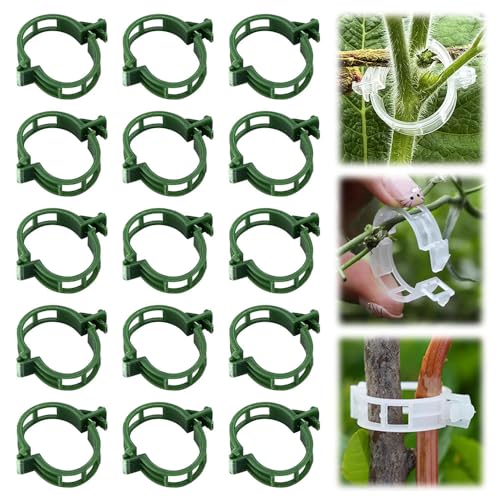5 Organic Gardening Issues And How To Solve Them
Organic gardening is a popular trend in today’s society. It is the practice of growing plants and flowers without pesticides, fungicides, herbicides, or other synthetic substances. These methods are low-maintenance and are good for the environment. However, organic gardening can be difficult because there are many factors to watch out for in order to get the best possible results – especially when it comes to pests and diseases! This article lists five issues that you might run into while gardening organically and how you can fix them with some simple solutions.
What are Organic Gardening-pros and cons of organic farming
Organic gardening is a type of gardening that uses natural methods instead of synthetic or artificial chemicals. It is important to note that organic gardening is not the same as sustainable gardening. Sustainable gardening practices use methods that can maintain or improve the quality of the environment while protecting wildlife and ecosystems, but organic gardening does not always meet these criteria.
There are several different types of organic gardening(benefits of organic farming on the environment), including composting, bed-and-breakfast horticulture, companion planting, and raised beds. Each variety has a unique set of advantages and difficulties.


What to Plant in Spring Garden 2025
$5
The ultimate guide for spring 2025 gardening
- Comprehensive Guide
- Easy-to-Follow Steps
- Year-Round Tips
- Organic Practices
- Enhance Your Garden’s Aesthetic
- Download Now and Start Your Gardening Journey!
One of the biggest benefits of organic farming is that it helps to reduce the number of harmful chemicals used in agriculture. These chemicals can cause health problems in people and animals, as well as damage ecosystems. By using organic methods, farmers can help to protect both people and the environment.
Another benefit of organic gardening is that it requires less water than traditional farming. This is because organic plants require more water to grow, but they use this water to create nutrients instead of pumping it out of the ground. This means that organic gardens need less water to function properly, which can save you a lot of money in the long run.
However, there are a few difficulties(negative effects of organic farming on the environment)
The 5 Most Common Organic Gardening Issues-gardening problems and solutions
- Over-watering
- Under-watering
- Not enough sunlight
- Poor drainage
- Poor soil
How to Solve the 5 Most Common Organic Garden Problems-benefits of organic farming for society
There are a few common organic gardening problems that gardeners may experience. If you are not sure how to solve them, read on for some helpful tips!
- Waterlogging: One of the most common organic gardening problems is waterlogging. This occurs when too much water accumulates on the surface of the soil, leading to a lack of oxygen and root growth. To prevent waterlogging, make sure to Mulch your plants and add plenty of organic matter to your soil.
- Weeds: Another common organic gardening problem is weeds. If you do not have a good weed control strategy, your plants will quickly become covered in weeds. To solve this problem, use a pre-emergent herbicide before planting your seeds, and then regularly weed your garden during the growing season.
- Fertilizer Overdose: Too much fertilizer can be another common organic gardening problem. If you apply too much fertilizer, it can damage your plants and cause them to grow slowly or not at all. To avoid this problem, use a nutrient calculator to determine the correct amount of fertilizer to apply to your soil, and then fertilize only as needed.
- Poor Drainage:


What to Plant in Spring Garden 2025
$5
The ultimate guide for spring 2025 gardening
- Comprehensive Guide
- Easy-to-Follow Steps
- Year-Round Tips
- Organic Practices
- Enhance Your Garden’s Aesthetic
- Download Now and Start Your Gardening Journey!
Upcoming Organic Gardening Trends
There are many upcoming organic gardening trends that gardeners need to be aware of. One trend is the increasing popularity of vertical gardening. This involves planting plants in containers or on walls instead of in the ground.
Another trend is the use of greenhouses and other environmentally-friendly growing methods. These methods help to keep plants warm and moist, which is beneficial for healthy growth.
Gardeners also need to be aware of pests and diseases. By understanding how to prevent these issues, they can keep their gardens healthy and free from pests and diseases.
Conclusion
If you’re thinking of starting an organic garden, or if you’re just looking to keep your garden in good shape, then this article is for you. In it, we’ll discuss some common issues that can plague a garden and how to solve them. We’ll also give tips on things like soil management, pest control, and watering schedules so that your garden thrives year-round. So read on and learn how to care for your organic space the right way!
Hedera Helix: A Weed You Might Not Recognize
how to grow and care – jade plants
How to Create an Outdoor Terrace Garden
Wonderful gardening advice: How to store fruit and vegetable seeds
Tips for successful fall yard planting 2022
preparing and planting guide for winter vegetables
How to prepare a winter garden bed
Buying Your First Kitten: tips
Is organic gardening a problem?
What are some problems happening in the garden?
Is organic gardening better?
Is organic gardening safe?






